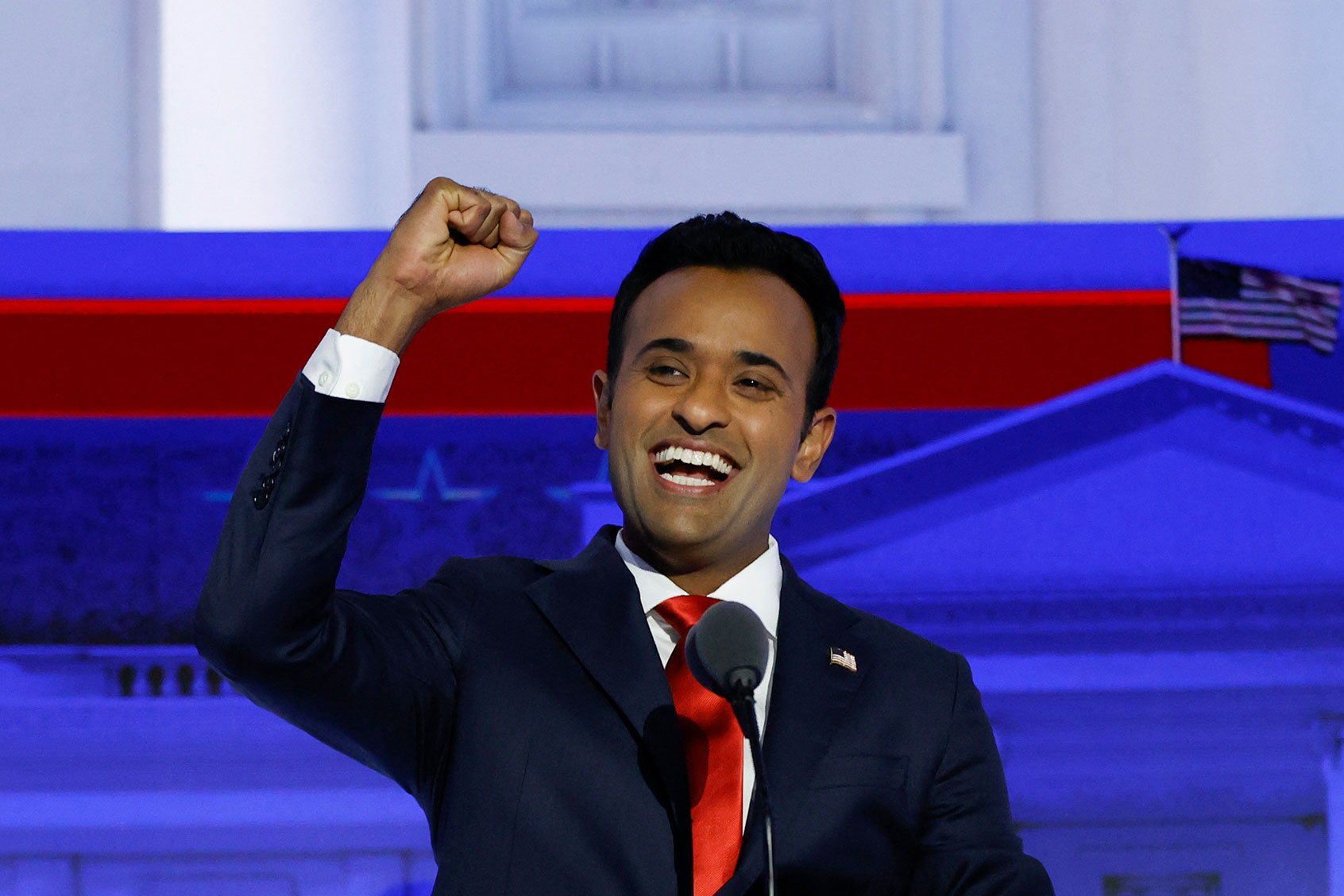Vivek Ramaswamy, one-time Republican presidential candidate, gave BuzzFeed management his vision for mass layoffs and far-right voices on the platform, after acquiring an 8.4% stake in the online media company.
In a letter to the BuzzFeed Board of Directors, Ramaswamy wrote that the company was “caught without a viable strategy” amidst the death of the social internet model. Citing plummeting share prices and declining revenue, the self-proclaimed “serial founder” urged for shake-ups.
Among Ramaswamy’s demands: hire “talents” like Tucker Carlson, Bill Maher, or Candace Owens to “challenge your audiences.” This came as part of his proposal to expand creator-led audio and video on the platform, one of three phases outlined in Ramaswamy’s plan.
Ramaswamy also pushed for the media company to return to “start-up size,” arguing that the board should only keep producers of the “highest-value content.” Putting it bluntly, “large-scale headcount reductions.” BuzzFeed, which in February laid off 16% of its workforce amidst a sell-off of Complex, wouldn’t be alone if it underwent a massive labor force cut.
The candidate, who ran for president on small government and massive federal layoffs, dropped out after coming in fourth during the 2024 Iowa caucus. He has since backed the Republican victor-apparent and former President Donald Trump, careful to keep criticism to a minimum in order to angle for a high-level role in a potential administration, a gambit which was ultimately in vain.
Ramaswamy is not the first big-money voice to venture into the news publication business. Jeff Bezos purchased The Washington Post in 2013 for a quarter of a billion dollars. Rupert Murdoch famously built a media empire, controlling the British and Australian media markets while snatching up American imprints like the New York Post. Patrick Soon-Shiong took control of the Los Angeles Times and a slew of other papers – before slashing its workforce by 20% earlier this year.
Ramaswamy told board members to suppress their “temptation to reject what you are about to hear on partisan grounds,” while BuzzFeed CEO Jonah Peretti told Ramaswamy that his skepticism came more so from his central plan to “turn BuzzFeed into a creator platform for inflammatory political pundits.”
“We’re definitely not going to issue an apology for our Pulitzer prize-winning journalism,” Peretti said in response to another demand of Ramaswamy’s, to apologize for its “failures.”


